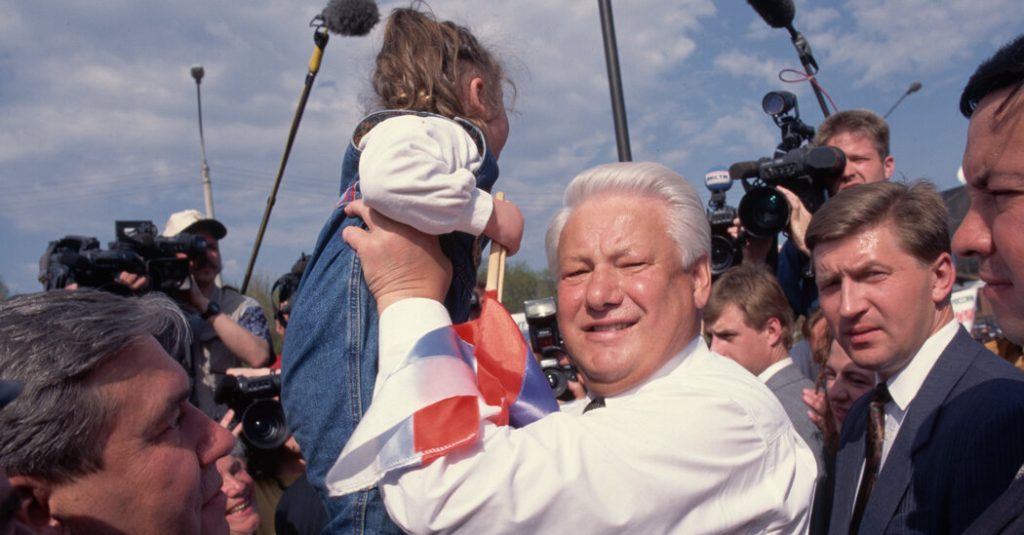In 1996, then-Russian President Boris Yeltsin faced a crucial decision about whether to run for a second term. Despite low approval ratings and concerns about his health, his advisers pushed for his candidacy, arguing that he was the only one who could prevent a Communist resurgence and protect democracy in the country. Opposed by a formidable Communist leader, Gennady Zyuganov, Yeltsin eventually agreed to run, pledging to defeat his opponent and safeguard Russia’s future.
The campaign that followed was marked by fear-mongering and manipulation tactics designed to instill a sense of dread among the population about the potential consequences of a Communist victory. The Russian media, once relatively free, became a propaganda tool for Yeltsin’s re-election bid, demonizing Zyuganov and painting a grim picture of a Communist-led Russia. The campaign was also marred by corruption, with state funds funneled to businessmen close to the regime to support Yeltsin’s re-election.
Despite health concerns, Yeltsin narrowly won the election, but questions lingered about his ability to govern effectively. In 1999, with Yeltsin’s health deteriorating, his inner circle orchestrated his early resignation, paving the way for his chosen successor, Vladimir Putin, to assume power. Putin would go on to embody the authoritarian tendencies that were feared in a Communist victory, restoring aspects of Soviet rule and initiating repressive measures.
While some of the architects of the 1996 election justified their actions as necessary to preserve Russian democracy, critics like Alexei Navalny argued that it eroded trust in democratic principles and fair elections. The comparison between the Russian election of 1996 and the current U.S. presidential campaign may seem like a stretch, given the differences in leadership, electoral transparency, and media freedom. However, the cautionary tale of Yeltsin’s campaign highlights the risks of relying on fear-based tactics and emphasizing that only one person can save democracy.
The experience of Russia in 1996 underscores the importance of offering voters more than just protection from a perceived worse alternative and the dangers of eroding faith in the democratic process. As the fate of democracy is frequently debated in America today, lessons from Russia’s past remind us that the complexities of politics and power dynamics can have lasting implications for the future of democracy.


